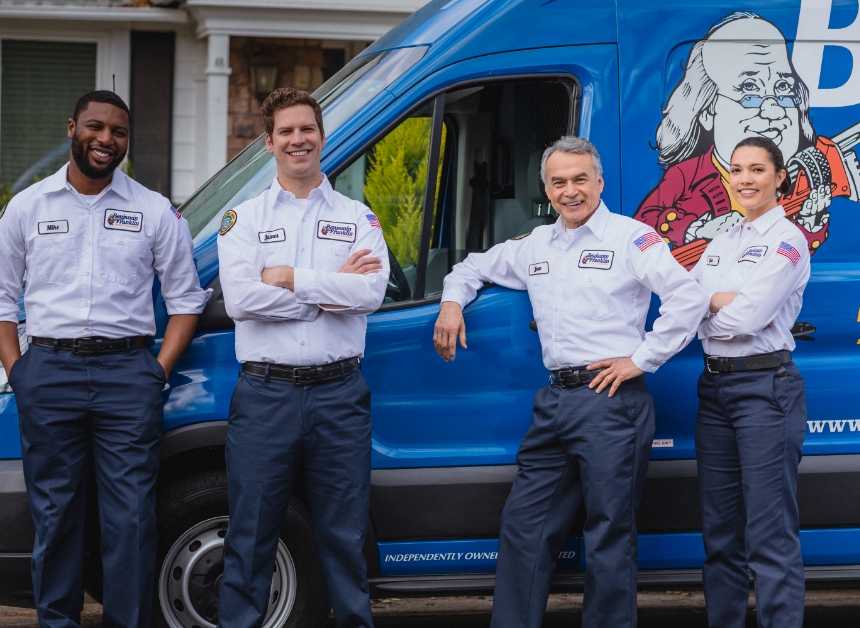The Real Scoop on Tankless Water Heaters
Let’s get real about tankless water heaters. You’ve probably heard the hype, endless hot water, energy efficiency, sleek design. Sounds like a home improvement dream, right?
But before you start imagining your perfect, tech-savvy bathroom setup, we need to have an honest chat about what these systems really bring to the table.
The Excitement vs. The Reality
You’re scrolling through home improvement magazines or talking to your tech-savvy friend who just installed a tankless water heater.
They’re singing its praises, painting a picture of perfect, on-demand hot water and massive energy savings. But here’s the thing every technology has its quirks, and tankless water heaters are no exception.
Breaking Down the Dollar Signs: The True Cost of Going Tankless
Let’s talk money the part that makes most homeowners wince. A tankless water heater isn’t exactly what you’d call a budget-friendly appliance. Installation is where things can get spicy. Unlike a traditional water heater that’s pretty much a plug-and-play situation, tankless systems often require some serious home upgrades.
Need a beefier gas line? Prepare for additional costs. Electrical system upgrade? Ka-ching! It’s like buying a fancy sports car and then realizing you need to rebuild your garage to park it.
The Hot Water Dilemma: Not All Households Are Created Equal
Here’s a scenario that might sound familiar. You’re in the shower, your teenager is running the dishwasher, and someone else is doing laundry. With a traditional water heater, no problem. With a tankless system? You might be in for a chilly surprise.
Tankless water heaters have a flow rate limitation that can be a real buzzkill for larger families. Imagine the water temperature dropping mid-shower or getting that disappointing lukewarm stream when you’re expecting a hot, steamy cascade. To combat this, you might need to invest in multiple units or a high-capacity model which, you guessed it, means more money.
The Hidden Costs of Keeping Things Running Smoothly
Think tankless means maintenance-free? Think again. These systems require regular TLC, especially if you live in an area with hard water. Mineral buildup can be the silent killer of your fancy new water heater, reducing efficiency and potentially shortening its lifespan.
Most manufacturers recommend annual descaling which means professional maintenance. And professional doesn’t mean cheap. You’ll also want to invest in water softeners or sediment filters to protect your investment. It’s like owning a high-maintenance sports car that needs constant pampering.
When Your Home Fights Back Against Modern Technology
If you’re living in an older home, switching to a tankless system isn’t as simple as swapping out your old water heater. These modern marvels often require:
- Updated gas lines
- Electrical system upgrades
- Specialized venting
- Potential structural modifications
What sounds like a straightforward upgrade can quickly turn into a full-blown home renovation project. Your charming vintage home might need some serious convincing to welcome this new technology.
The Waiting Game: Patience Is a Virtue
Here’s a surprising quirk “on-demand” doesn’t always mean instant. Unlike traditional water heaters that keep water constantly hot, tankless systems start heating when you turn on the tap. This means a slight delay in getting hot water, which can be frustrating if you’re used to immediate warmth.
The wait time depends on your home’s layout and the distance between the heater and the tap. We’re talking seconds to a minute, but when you’re rushing in the morning or just want a quick hot shower, those moments can feel like an eternity.
The Climate and Habit Factor
Tankless water heaters are marketed as energy-saving superheroes. And they can be but with caveats. Your actual savings depend on your water usage habits and local climate.
Live somewhere cold? Your tankless system will work harder to heat water, potentially reducing those promised energy savings. Enjoy long showers or run multiple appliances simultaneously? You might not see the dramatic efficiency improvements you were hoping for.
Components Have Limits
Yes, tankless water heaters can last up to 20 years. But that doesn’t mean everything inside will. Heat exchangers, electronic controls, and other components can fail. While the system’s lifespan may be longer, repairs and replacements can still add to your costs.
Making the Decision: Are Tankless Water Heaters Right for You?
Going tankless isn’t a one-size-fits-all solution. It’s about balancing potential benefits with real-world challenges. Consider:
- Your household’s water usage
- Home infrastructure
- Budget for initial installation and ongoing maintenance
- Long-term energy cost potential
The Bottom Line
Tankless water heaters aren’t inherently good or bad—they’re complex technologies with pros and cons. They offer incredible potential for the right household but can be a costly mistake for others.
My advice? Talk to a professional. Get a detailed assessment of your home’s specific needs. Understanding the full picture will help you make an informed decision that keeps both your comfort and your wallet happy.
